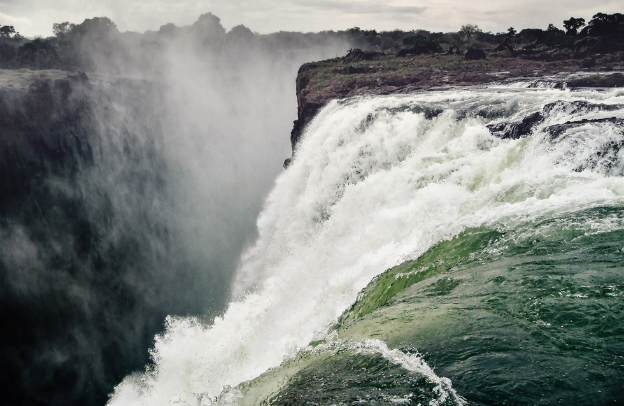“Essential Safety and Security Tips for Group Travel in Africa: A Comprehensive Guide”

How do you Navigating Safety and Security for Group Travelers in Africa? Picture this. The golden light of dawn spills over the savannah. You step off the vehicle, your feet touching African soil, your group around you quiet, present, reverent. This is not just travel. This is a return, a reconnection, a story waiting to be told.
Learn How to Leverage Your Story through our Story To Asset Framework.
But no matter how magical the setting, one truth remains: your experience is only as rich as the safety that anchors it. From Lagos to Nairobi, from Cape Town to Cairo, traveling as a group in Africa demands awareness, preparation, and deep respect for the land and people you meet.
Shared Wisdom, Shared Safety
Group travel is a blessing. It brings companionship, strength in numbers, and the beautiful energy of collective discovery. But it also calls for shared responsibility. Just as the African saying goes, “A single bracelet does not jingle.” You need each other to stay grounded, prepared, and alert.
Let’s explore ten pillars of group travel safety across the African continent, rooted in wisdom, cultural understanding, and practical care.
1. Know Your Tools: Government Advisories and Emergency Preparedness
Before you even pack your bag, gather the right tools. Tap into official travel advisories from your government. The U.S. State Department, Canada’s Global Affairs, and the UK’s Foreign Office all offer vital updates on safety, health, and political climate. Pair this with resources like International SOS, which offers detailed guidance on medical and security conditions in specific countries.
See also Cultural Immersion in Africa: How Diasporans Can Connect to Their Roots Through Travel
Create a shared file with this information. Add emergency numbers, embassy contacts, and protocols for medical support or police interaction. Make sure everyone in your group knows how to access it.
Action Step: Hold a pre-trip meeting. Walk through the plan together and assign roles for safety leads, document keepers, and communicators.
2. Petty Theft: Stay Light, Stay Smart
Petty theft is one of the most common risks for tourists. Pickpocketing, bag snatching, and minor scams often happen in crowded areas.
What to Watch For:
Markets, bus stations, and tourist hotspots are where distractions happen. Some thieves work in pairs; one distracts while the other acts.
How to Prepare:
- Use bags with cross-body straps worn in front.
- Keep valuables in hidden pockets or under clothing.
- Loop your bag strap around your chair when seated.
- Be alert during transitions, boarding buses, exiting taxis, or unloading luggage.
African proverb says, “Wisdom is like a baobab tree; no one individual can embrace it.” Listen to your guide’s safety briefing, share knowledge, and look out for one another.
3. Road Safety: The Journey Deserves Respect
Across the continent, road conditions vary. In some places, potholes and poor lighting make rural roads risky. In others, traffic rules are loosely followed, and local vehicles like matatus or boda-bodas have their own rhythm.
Group Guidance:
- Avoid self-driving unless absolutely necessary.
- Use transport booked through trusted providers.
- Walk in well-lit areas at night and stay in pairs or groups.
- Confirm driver details before entering vehicles and avoid haggling on the move.
Staying safe on the road means trusting local knowledge, choosing experienced drivers, and traveling with awareness.
You might also like The Importance Of African Names And The Diaspora Identity – The Diaspora Storytelling Series
4. Water Safety: Beauty with Boundaries
Africa’s lakes and rivers are stunning, from the calm waters of Lake Malawi to the flowing Nile. But even beauty carries risk.
Essential Practices:
- Always wear a life jacket when boating.
- Only swim in designated or supervised areas.
- Avoid alcohol before swimming or using watercraft.
- Choose well-maintained boats and reputable operators.
Water doesn’t need to be feared, only respected. Let your group celebrate the moment, not become part of a cautionary tale.
5. Environmental and Health Awareness
Africa’s landscapes shift from arid deserts to lush rainforests. Each ecosystem brings its own challenges, whether it’s extreme heat, high altitude, or mosquitoes carrying malaria.
Protective Habits:
- Stay hydrated, especially in hot climates.
- Use insect repellent with DEET or Picaridin.
- Sleep under mosquito nets when needed.
- Choose lodging with proper fire exits, smoke alarms, and secure access.
Keep track of weather patterns in your destination. Floods, droughts, or seasonal storms can affect travel plans and safety. Let local guides and trusted contacts advise you when plans need to shift.
6. Blend In, Stay Grounded
As a group, your presence is more noticeable. But with humility and cultural respect, you can travel with dignity and discretion.
See also Reclaiming Roots Through Agritravel & Storytelling: A Powerful Gathering of African Diaspora Voices
Simple Strategies:
- Avoid flashy jewelry and expensive gadgets in public.
- Dress modestly according to local customs.
- Keep group conversations respectful in tone and language.
- Avoid American-style bars or locations that draw large tourist crowds.
And above all, steer clear of political protests. What starts as peaceful can shift quickly, and foreign tourists may attract unwanted attention.
Travel is not performance. It is present. Blend in to learn, not to hide.
7. Addressing Harassment and Assault
Unfortunately, harassment can happen anywhere. Preparation and communication within your group can make a difference.
Build a Safe Culture:
- Discuss boundaries and safety openly.
- Watch each other’s drinks. Never accept open drinks from strangers.
- Know the local healthcare system and embassy contacts in case of emergency.
If something does occur, support the person affected. Seek immediate care, report when safe, and access institutional or embassy resources. Let your group be a circle of strength.
8. Alcohol and Drugs: Know the Laws, Respect the Culture
Africa’s nightlife can be lively and full of rhythm. But alcohol misuse or drug involvement can derail everything.
Avoid Trouble:
- Don’t mix alcohol with adventurous activities or late-night travel.
- Avoid suspiciously cheap alcohol, especially homemade brews.
- Do not engage with illicit drugs under any circumstances. Penalties can be severe and unforgiving.
Enjoy responsibly. Your clarity is your compass.
9. Managing Money: Secure the Essentials
Money is always a travel concern. But a few habits can make the difference.
Travel Smart:
- Inform your bank of travel dates.
- Use secure ATMs, preferably inside banks or hotels.
- Carry just enough cash for the day. Store the rest securely.
- Use money belts or hidden pouches.
Let your finances be a support system, not a stressor.
10. Protecting Your Documents
Your passport is more than paper; it holds your movement, your identity, your story.
Backup Plan:
- Make two or three copies of key documents.
- Store one in your luggage, one with your group leader, and another digitally on a secure cloud service.
- Know where your embassy is located and how to contact it.
Losing your passport in a foreign country can be disruptive, but preparation makes recovery possible.
See also Tailored Tourism Experiences to Enhance African Diaspora Cultural Connections
Final Reflection: Safety as a Shared Legacy
Safety is not a burden; it is a foundation. When each traveler in your group takes ownership of their role, the entire journey becomes more powerful.
This is more than travel. It is about owning your story, preparing to turn it into a strategic asset, and stepping forward with a sense of collective purpose.
Before departure, gather your group for a full safety session. During your travels, stay connected, check in regularly, and follow the wisdom of those who walk before you.
Move from Roots to Relevance
To continue this journey of transformation, explore the Story to Asset Framework at AClasses.org. You’ll find over 2000 articles, practical guides, and interviews with African diaspora professionals on The Obehi Podcast—available on YouTube and major streaming platforms.
Whether you’re exploring the savanna or building your business from your story, let safety, heritage, and collaboration lead the way.
You are not just tourists. You are builders of legacy, protectors of memory, and carriers of culture. Move boldly, move wisely, and move together.
Learn How to Leverage Your Story through our Story To Asset Framework.





